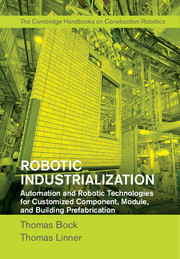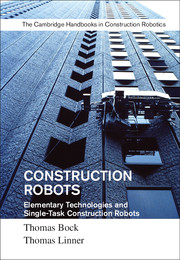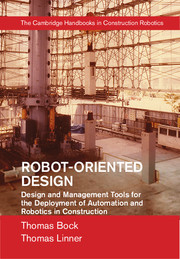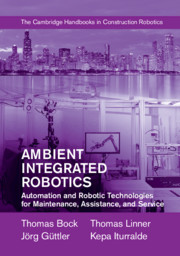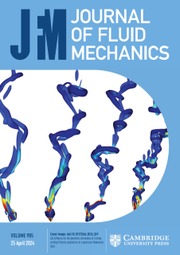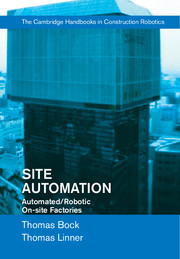Robotic Industrialization
The Cambridge Handbooks on Construction Robotics series focuses on the implementation of automation and robot technology to renew the construction industry and to arrest its declining productivity. The series is intended to give professionals, researchers, lecturers, and students basic conceptual and technical skills and implementation strategies to manage, research, or teach the implementation of advanced automation and robot-technology-based processes and technologies in construction. Currently, the implementation of modern developments in product structures (modularity and design for manufacturing), organizational strategies (just in time, just in sequence, and pulling production), and informational aspects (computer-aided design/manufacturing or computer-integrated manufacturing) are lagging because of the lack of modern integrated machine technology in construction. The Cambridge Handbooks on Construction Robotics books discuss progress in robot systems theory and demonstrate their integration using real systematic applications and projections for off-site as well as on-site building production.
In this volume, concepts, technologies, and developments in the field of building-component manufacturing – based on concrete, brick, wood, and steel as building materials and on large-scale prefabrication, which holds the potential to deliver complex components and products – are introduced and discussed. Building-component manufacturing refers to the transformation of parts and low-level components into higher-level components by highly mechanized, automated, or robot-supported industrial settings. The definitions of components are interpreted differently by different industries and even by individual companies; however, these definitions share a common element, that components are more or less a complex combination of individual preexisting parts and/or lower-level components. Pure building-component manufacturing can be distinguished from the transformation of raw materials into parts (e.g., the production of bricks or simple concrete blocks).
- A new interpretation of architecture and construction as a manufacturing industry that deals with product rather than with buildings: from building 'construction' to building 'production'
- Follows a cross-disciplinary approach that relates traditional architectural and construction knowledge with the latest knowledge from manufacturing, automation and robot technology
- Oriented towards technology application: shows by real world case studies application scenarios for each presented approach or technology and thus gives a good guide to real world implementation
Product details
August 2015Hardback
9781107076396
260 pages
260 × 182 × 16 mm
0.74kg
482 b/w illus. 85 tables
Available
Table of Contents
- 1. Introduction
- 2. Automation and robotics in building-component manufacturing
- 3. Building-module manufacturing
- 4. Comparison of large-scale building manufacturing in different countries
- 5. Large-scale building-system manufacturing in Japan.

